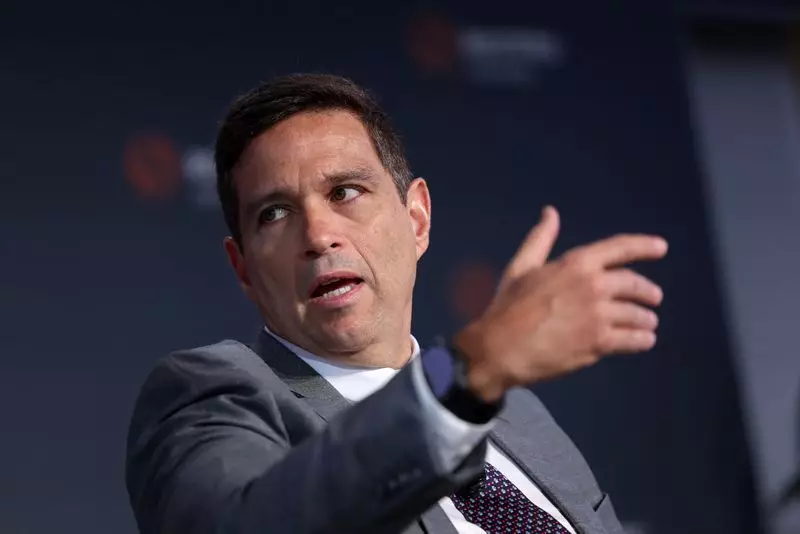Brazil’s economy, like many across the globe, is grappling with inflationary pressures exacerbated by external factors, particularly the political landscape in the United States. Roberto Campos Neto, the President of Brazil’s Central Bank, articulated these concerns during a recent event held in conjunction with the annual meetings of the International Monetary Fund (IMF) and the World Bank. His remarks underscore how market sentiments are beginning to reflect anxieties over potential inflation driven by the upcoming U.S. election, where heightened speculation about Republican candidate Donald Trump’s chances against Democrat Kamala Harris is already influencing financial markets.
The interconnection between U.S. fiscal policies and inflation trends is more pronounced than ever, as suggested by Campos Neto. He highlighted that both political campaigns are promising fiscal expansions, which could further fuel inflation. Additionally, proposals aimed at protectionism and shifts in immigration policy, compounded by the unpredictability of electoral outcomes, may lead to inflationary pressures that are not just localized within the United States but have far-reaching implications for emerging markets like Brazil.
Brazil’s Domestic Inflation Metrics
On the home front, Brazil’s latest inflation figures depict a concerning yet slightly improved picture. The country’s consumer price inflation reached 4.47% year-over-year by mid-October, a figure that exceeds the official target of 3% yet falls within the acceptable margin of 1.5 percentage points. While Campos Neto expressed that the recent announcement of lowering energy tariffs in November is a positive development, it is clear that the fight against inflation is far from over. The government’s measures showcase an effort to alleviate some inflationary burdens that Brazilian consumers face.
While recognizing the marginally adverse inflation figures in Brazil, Campos Neto reminded the audience that achieving sustainable fiscal improvement is critical. He emphasized the need for robust structural reforms to reduce the risk premium currently affecting the country’s financial landscape. The looming municipal elections at the end of the month may serve as a significant turning point for potential fiscal announcements that might stabilize investor confidence.
Long-term Implications for Brazilian Interest Rates
A focal point of Campos Neto’s address was the dissonance between Brazil’s long-term interest rates and the actual fundamentals governing the nation’s economic situation. He posited that Brazil’s public finances, while strained, are not in a worse condition compared to similar economies. Nevertheless, much of the perceived risk premium in the yield curve is indeed tied to fiscal uncertainties.
As markets brace for the central bank’s upcoming policy meeting on November 5-6, expectations are set for an aggressive rate hike of 50 basis points. This follows a previous 25 basis-point increase in September, pushing the interest rates up to 10.75%. The Central Bank’s commitment to achieving its inflation targets remains unwavering, signaling a proactive stance in confronting economic challenges.
While external electoral influences loom large, Brazil’s path toward stabilizing its economy requires a balanced approach—one that involves careful navigation of both domestic policies and international sentiments.

